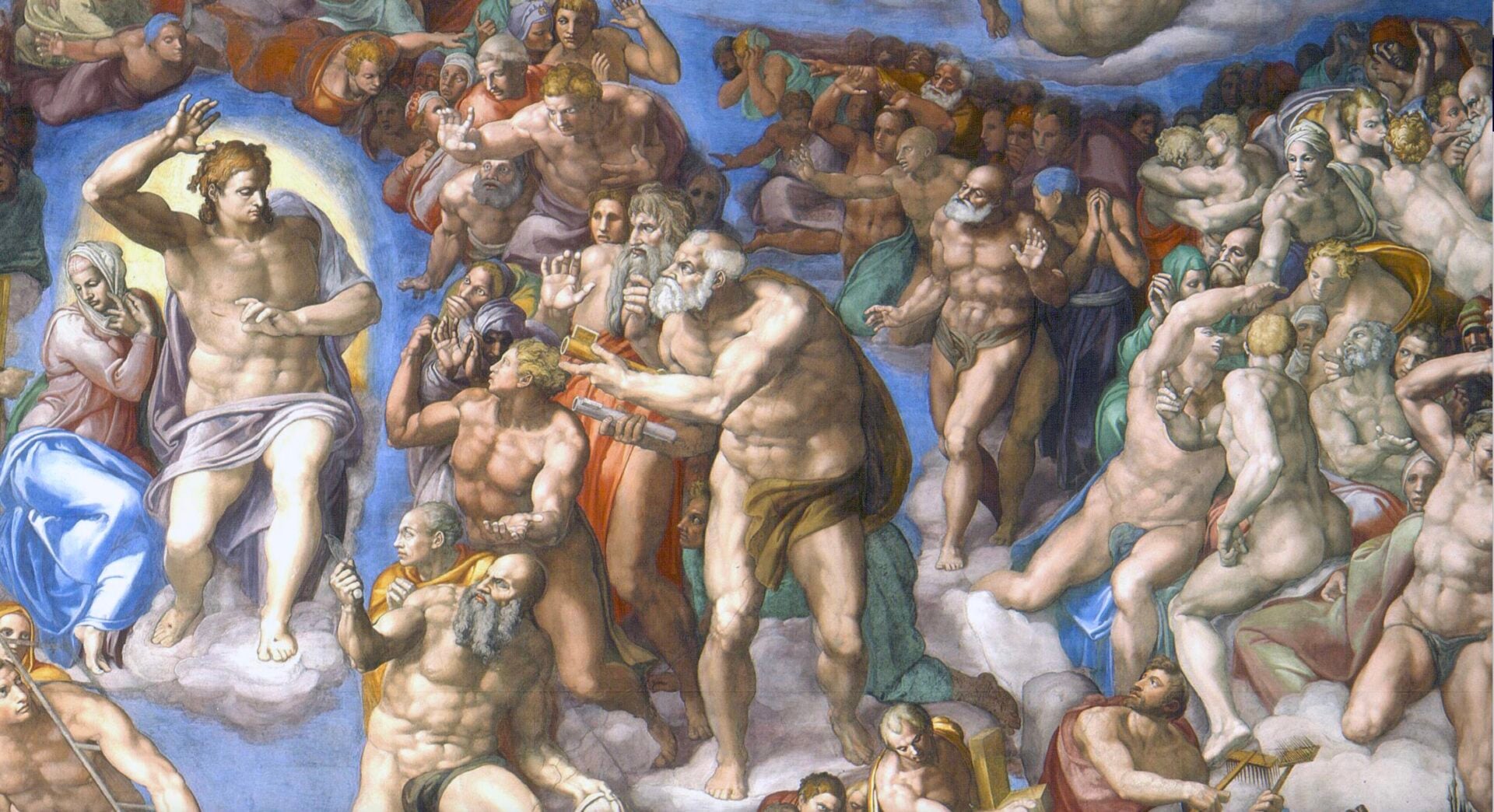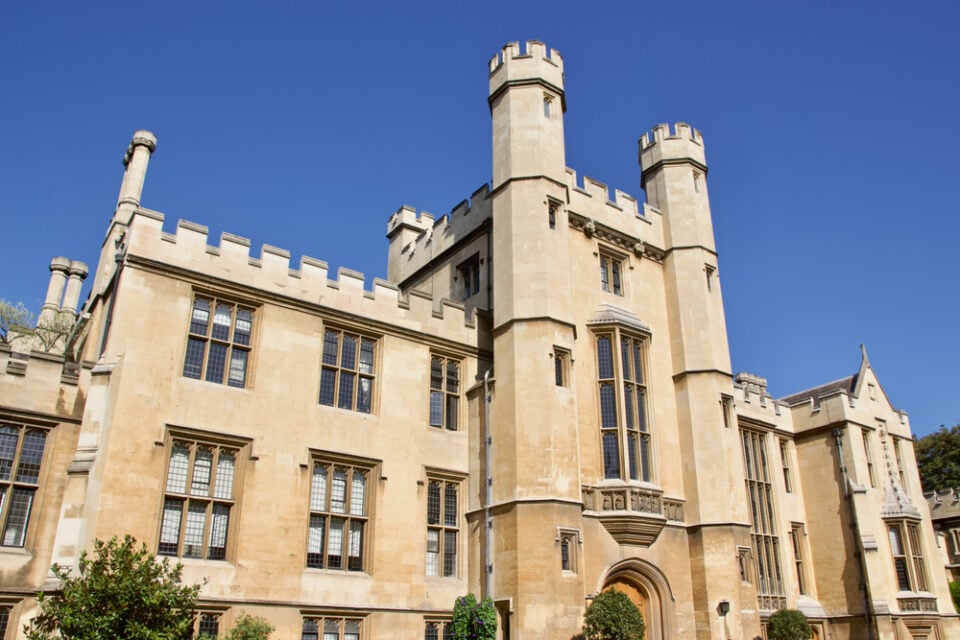By the Reverend Tim Sherwell
What is the meaning of “salvation” for Christians, and is there more than one interpretation of what it means? In a general sense salvation means ‘to be rescued,’ or ‘recovered from danger.’ Salvation is to have been saved from a perilous situation.
What are we being saved from? The world and it’s evil ways would be the common religious styled answer. The language commonly used to describe what we are saved from is flesh, sin, and immorality. Who gets to define immorality and sin though? There are no designated people, with the one exception being the church councils. But even that is questionable. For example, how cana group of celebrant men decide on the sexuality of others in a different hemisphere? Do they have the right to decide for others? Is that an accepted view?
There are also some thoughtful concepts around the concept of what we are saved from. For example, at the root of all suffering is a lie, or some sense of denial. It is the failure to acknowledge suffering, or the cause of suffering, which allows it to continue. What we are saved from is an essential part of understanding what salvation is.
Evil, suffering, lies are all external factors. They can be located outside of ourselves. But perhaps the first thing we need to be ‘saved from’ is ourselves? Is this the meaning of salvation? Is it not human self-centerdness that sits at the root of many problems – far more than we care to acknowledge or disclose. Self- centredness and empathy cannot cohabitate. There is no point saying we need an increase in love and kindness if we cannot eradicate selfishness first. That would be like looking at the scoreboard before you’ve kicked the goal. While humans remain self-centred, we are not able to act in a way that considers others. We remain self serving. In religious terms, no one is further from God than the self- centred individual. No one closer than s/he who carries their own cross.
There are two main approaches to salvation within the established churches;
- Salvation is popularly indicated by a person submitting to church protocols. Churches would not say so but it is what happens. Newcomers are baptised, and required to say that they believe in Jesus as the incarnation of God. They would be required to attend church and hang out with other members who would mentor them about how to understand the bible. By doing these things, and living by the moral code set down by the church elders, they are considered to be saved. Inthis model, salvation is closely allied to compliance and control. It is formulated and salvation becomes a reward for compliance. The clear outlined process is appealing in the post modern era. There is always clarity in a formula, but the weakness is that religion is abstract and cannot be formulated or limited to process.
- The Reverend Dr Boyd Evans is a lifelong Episcopalian (Anglican). He started his working life gaining qualifications in Bio-Medical Engineering before becoming an Anglican priest. He worked 8 years at St Thomas’ Church in Abingdon Virginia US, working strongly with refugees and the vulnerable. In February 2025 he became rector of St Andrew’s Denver Colorado in the US. A quote from Reverend Evans work highlights a different conceptual approach to salvation in the christian tradition;
Christianity was never about individual salvation. It is well past time for us to get over this notion. If you don’t believe that your salvation is bound up with your neighbour’s, you have entirely missed Jesus’ message.
The Reverend Dr Boyd Evans puts a second option forward; a realistic and sensible concept. We are not saved ‘from’ an evil world. Rather we are invited to enter into the suffering of the world and to do something about it. In so doing we are “taken into” the mystery of God at the same time. To put it simply, if you enter into another person’s suffering, you are entering into God. There is no separation from – more so a sense of engaging with. You will be experiencing salvation as you do. Salvation becomes a living paradox.
“I have not hidden your saving help within my heart …. I have not concealed your steadfast love from the great congregation” (Psalm 40:10). The psalmist, likely heading back home after a lifetime in exile and suffering in a foreign land is sharing insight into what is now of upmost importance. The psalter records these thoughts and songs to help protect future generations from past errors. This piece of social and religious engineering teaches us it is a mistake to conceal faith. It is not a personal possession. Rather faith is a gift from God. We are asked to love the great congregation; which is the community. There is no instruction to baptise, convert, exact compliance or talk shit about morality or sin. The point is to love one another. In the mind of those returning from Babylon to Israel, salvation is a matter of welfare and concern for others. God’s faithfulness and salvation is inseparably bound to our concern for suffering.
Loving others within a community is not easy. It is why many people cannot do real religion. Take any church and you get an average of 20% of the congregation (at most) that can ‘love.’ There is no talk of a reciprocal love here as two people might share with one another. Community lovemeans to notice the needs of another, and to treat them as though they matter. Jesus was fairly strong on it; “I give you a commandment, that you love one another. By this everyone will know that you are my disciples” (John 13.34). Love is the character of being Christian. It is love within community. Love and salvation is therefore relational. In the same chapter there is dialogue aboutJesus relationship with God, and the disciples relationship with one another. Community impliesrelationship, and in this case it is a multiplicity of many relationships. Salvation has a jurisdiction; not in compliance and control, but in a community shaped by love.
The two approaches to salvation are distinguished by the style of spirituality, prayer and praxis that each of these belief systems express.
- Type A tend to prefer an intercessory type of prayer. That is to say they pray out loud, usually pointing out to God what they see as being a need. They perceive God being somehow over and above the world, and as an entity who has the power to fix things. The prayers assume God hasn’t noticed the problems they have noticed, or for some reason their God wants them to pray before He will act. The action is to focus on self, church, friends, and disasters. Salvation is mainly an inward action, one of being rescued from a hostile world.
- Type B are more inclined to understand God as being a ‘part of’ the world in a more mysterious way, and to be a presiding energy / presence in and through, rather than over and above. This might be referred to as panentheism, meaning God is a mysterious presence in and through all living creatures. It is an abstract belief system, which is aligned to an abstract God. The prayer style tends toward being contemplative / listening, developing self-awareness, and the spirituality expressed in the love of nature, creatures and the vulnerable. It means leading a life of kindness. Church tends to focus more on the sacrament as a symbol of incarnational relatedness. Salvation has a strong outworking action.
When asked by one of the Scribes what the greatest commandment was, Jesus answered; First is to love God with all your heart, the second is to love your neighbour as yourself (Mark 12.30). There is nothing more important. Salvation is both love of God and love of others. We often refer to this as the golden rule.
We must be careful about working one aspect to the exclusion of the other. If we do good works for vulnerable neighbours then we’d be a service club. If we just loved God without understanding ourselves or community and the plight of those who suffer, then we’d be shallow and our religion would be of little practical use.
Salvation is a terribly religious word, and often unnecessary. However if we must use it, lets understand it properly. Salvation is the act of being sincerely engaged with God and also with those who are in need. Being saved means being mature, being ‘others centred,’ and trusting the paradox of life – one in which serving others means being taken into God at the same time. Salvation is to live inside the paradox.
Saying the world is hostile is misleading. The world is still mostly a beautiful place and there is an intrinsic need to understand that. There’s no point thinking we are being saved from something that doesn’t exist. In so saying I am not dismissing the madness, violence and suffering that does exist. They are all serious matters, but we don’t need ‘saving from’ them. Our role as religious is the cure of souls.
Life gives us the opportunity to love and to heal, but we cannot do that until we are sufficiently grown up. We cannot enter into the suffering of others until we have entered into the suffering of ourselves. Salvation requires an exploration of the depth of ourselves, and what it means to be fully human in the faith context. It is perhaps a mysterious and an abstract place where we can be still, love ourselves and love others deeply. Maybe there really is a salvation. But maybe we have to be saved from our own selfishness first.






